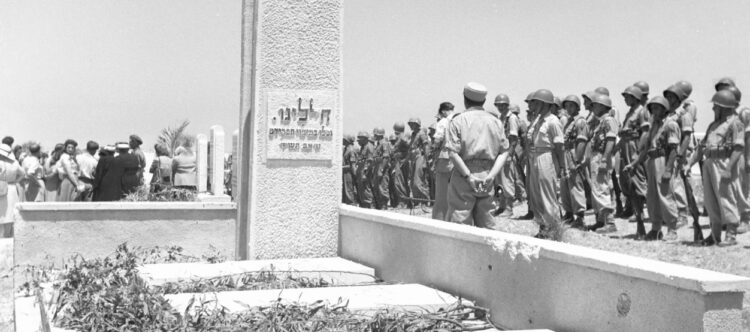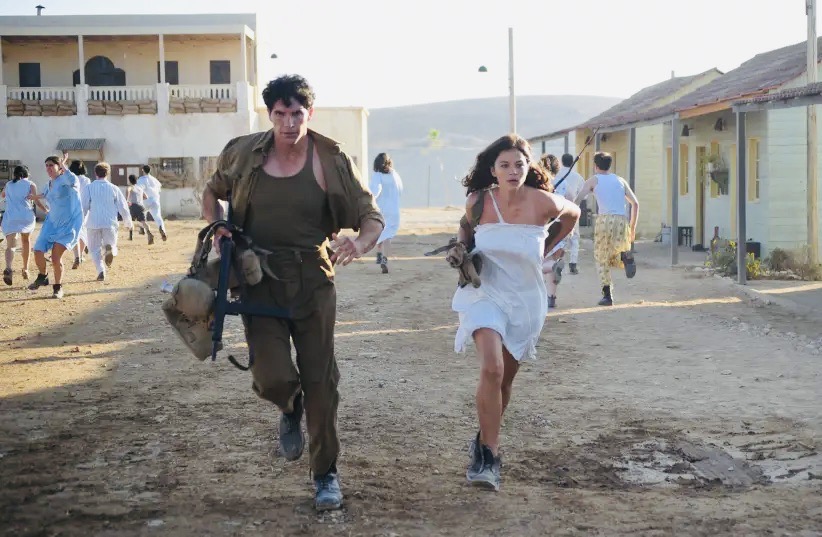Avi Nesher’s captivating movie, Image of Victory, takes viewers back 74 years to a long-forgotten but important battle during Israel’s War of Independence. It will be screened at this year’s Toronto Jewish Film Festival, which runs from June 9-26.
On June 7, 1948, Egypt won its first armed engagement with the newly-formed state of Israel when its army captured Nitzanim, an isolated kibbutz on the coastal plain midway between Ashdod and Ashkelon.
Thirty of its defenders were killed and 105 surrendered in what was generally seen in Israel as a humiliating defeat. The kibbutz, founded in 1943 and set amid sand dunes ending on a beach facing the Mediterranean Sea, was located within the boundaries of a Palestinian state under the 1947 United Nations Palestine partition plan, which the Palestinians and Arab states uniformly rejected.
Shortly after the passage of that historic resolution, Palestinian Arabs began attacking Jewish settlements in Palestine in what would be a civil war. Nitzanim was directly affected by the violence. Local Arabs who had sold tracts of land to Nitzanim began launching raids against its Jewish settlers. They were assisted by Egyptian volunteers from the Muslim Brotherhood.
Image of Victory, which in inspired by true events, is that rare Israeli film that presents this incident from both Israel’s and Egypt’s point of view. It begins in Cairo in 1979 as Mohamed Hassanein Heikal, a noted Egyptian journalist and the editor of the daily Al-Ahram,watches a ceremony on television in which Israel and Egypt sign a peace treaty.
A staunch nationalist who personally witnessed the fall of Nitzanim in his capacity as a young filmmaker, he opposes the treaty and denounces Egypt’s president, Anwar Sadat, as a traitor.
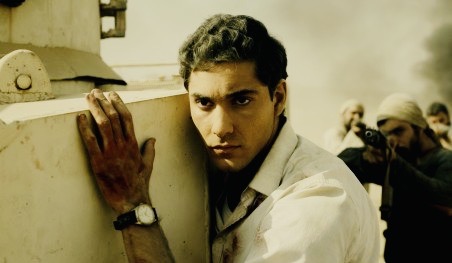
At this juncture, the film flashes back to December 1947, when Heikal, then 24, is given a commission by the Egyptian government to make a documentary about Nitzanim’s capture. He vividly remembers Egypt’s military triumph, but above all, he recalls the courageous and defiant face of Mira Ben-Ari, one of its diehard defenders.
The scene shifts to Nitzanim, which, after the passage of the United Nations resolution, is on high alert. Released prison convicts are sent to the kibbutz to reinforce its fortifications. Not all its residents are pleased with this desperate arrangement.
In short order, the kibbutz is attacked, and one of the kibbutzniks is killed while driving a supply truck. Heikal (Amir Khoury) and his cameraman record the ambush, which robs Nitzanim of food basics. Khleif (Ala Dakka), the commander of the Egyptian volunteer force, reprimands Heikal for shooting footage that might be misinterpreted as theft by audiences in Egypt.
Nesher presents Nitzanim as a peaceful oasis, the Arab raids notwithstanding. Kibbutzniks plant and tend to crops. They sit down together for communal meals. They go for a swim in the sea. The men sharpen their martial skills prior to mounting a retaliatory attack on the Arabs.
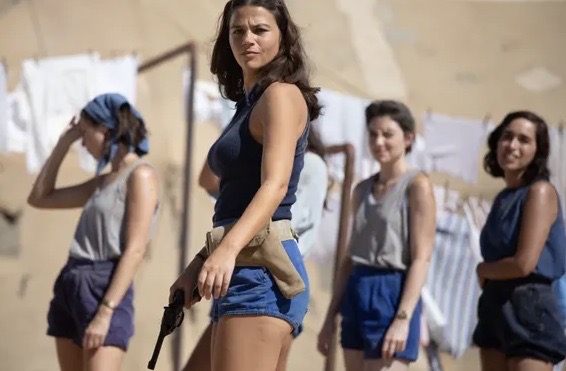
Tensions escalate after David Ben-Gurion, Israel’s first prime minister, declares statehood. Back at Nitzanim, personal dramas play out. Mira (Joy Rieger), separated from her husband, has an affair. Ziggy, a German-Jewish Holocaust survivor, impresses everyone with his skill as a pianist.
In a sign of further trouble, a neighboring kibbutz, Yad Mordechai, is overrun by Arab fighters, forcing its inhabitants to flee “like mice,” as Khleif sarcastically puts it.
After women and children are evacuated from Nitzanim, a long line of Egyptian armored vehicles rumble by, bound for Tel Aviv. The column is ambushed by Israeli forces, ending Egypt’s plan to conquer Tel Aviv. “It was clear we couldn’t win this war,” says Heikal in frustration.
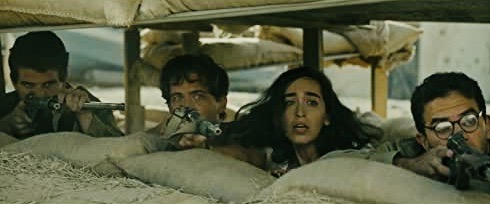
King Farouk needs a military victory to prop up his monarchy, and so Nitzanim is targeted by Egyptian bombers, tanks and infantry. Israeli reinforcements do not, as promised, arrive to relieve the kibbutz. In the face of a hopeless situation, the kibbutz surrenders.
Egyptian newsreels wildly exaggerate the conquest, falsely saying that the king personally commanded the forces arrayed against Nitzanim, and inaccurately claiming that thousands of Israelis were killed in defending the kibbutz.
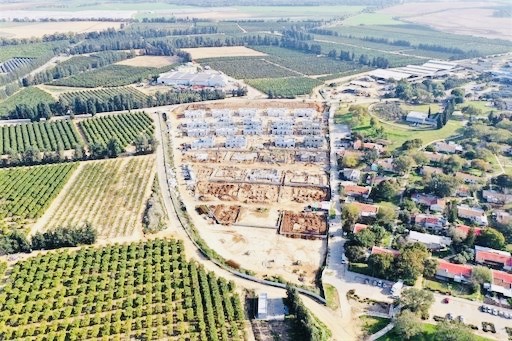
During the war, Israeli forces reclaimed Nitzanim, enabling the kibbutzim to rebuild it.
Image of Victory, bolstered by a stellar cast, presents this harrowing episode in Israeli history with objectivity and passion. At times, the film is heart-rending and moving. It’s an impressive contribution to Israeli cinema.
